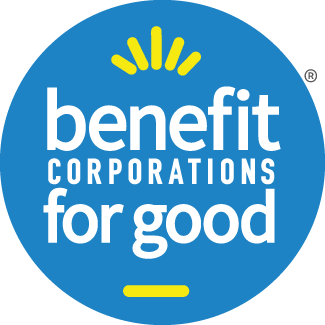7 Compelling Statistics that Motivate Businesses to Adopt a Triple Bottom Line Approach
Why should your small business become a triple bottom line business? Here are 7 compelling reasons for you to consider.
In search of compelling reasons to become a triple bottom line business, we asked seven industry leaders, including founders and CEOs, to share their insights. From aligning with consumer expectations to enhancing economic resilience and market value, these professionals provide compelling statistics to motivate your business transformation.
Aligning with Consumer Expectations
Tapping into Sustainable Consumer Demand
Achieving Higher ROI and Cost Savings
Impacting Stakeholders Positively
Increasing Customer Base and Revenue
Boosting Stock Returns with ESG Practices
Enhancing Economic Resilience and Market Value
Aligning with Consumer Expectations
In my journey of mentoring AI and SaaS businesses, I often draw on empirical evidence to guide decisions. One statistic that stands out is a staggering 93% of global consumers expect companies they do business with to support social and environmental issues, according to a Cone Communications CSR study.
Imagine this: Nearly every customer you interact with is evaluating not just your product's efficiency but its ethos. Becoming a triple-bottom-line business is no longer just a lofty ideal; it's a strategic imperative. Would a company not want to resonate with 93% of its clientele? The numbers speak for themselves.
But beyond numbers, it's about building a legacy. Would you rather be remembered as a business that solely pursued profit, or one that also uplifted society and the environment? The choice seems evident to me.
-Ankit Prakash, Founder, Sprout24
Tapping into Sustainable Consumer Demand
One statistic that significantly motivated me to adopt a triple-bottom-line approach in my business is the growing consumer demand for sustainable and socially responsible practices. Studies consistently show that a considerable percentage of consumers prefer brands that prioritize people, planet, and profits.
The compelling statistic is that over 70% of consumers will pay a premium for products and services from companies committed to social and environmental responsibility. This shift in consumer behavior is not just a trend; it's a fundamental change in how people perceive businesses.
Embracing a triple-bottom-line not only aligns with ethical values but also makes sound business sense by tapping into a market that values sustainability and social impact. It's not just about doing good—it's about staying relevant and thriving in a conscientious marketplace.
-Sai Blackbyrn, CEO, Coach Foundation
Achieving Higher ROI and Cost Savings
According to a study by the Harvard Business Review, companies that adopt a triple-bottom-line approach see an average annual ROI of 13.5%. This is significantly higher compared to traditional businesses, which only see an average ROI of 9.1%.
By focusing on social and environmental impact, businesses can attract socially conscious consumers who are willing to pay a premium for ethically produced goods and services. This not only increases sales but also improves brand reputation and customer loyalty.
Additionally, businesses that prioritize sustainability and social responsibility often see significant cost savings through energy efficiency, waste reduction, and resource conservation measures. For example, Unilever's Sustainable Living Plan has saved the company over $1 billion in costs since 2008 by reducing waste and increasing energy efficiency.
-Zach Shelley, Founder and CEO, A-List Properties
Impacting Stakeholders Positively
One compelling statistic to motivate a business to become triple-bottom-line is the number of people it could impact. By becoming a company that prioritizes people, planet, and profit in its operations, the business could have positive impacts on hundreds or even thousands of stakeholders.
For example, Unilever has improved the livelihoods of 59 million farmers through their sustainable agriculture projects. This illustrates how a dedicated effort towards sustainability can benefit not only the environment but many individuals as well.
-Julia Kelly, Managing Partner, Rigits
Increasing Customer Base and Revenue
Increasing consumer demand for sustainability and socially responsible practices is a compelling statistic that can motivate a business to adopt a triple-bottom-line approach. According to a Nielsen study, 73% of global consumers say they would alter their consumption habits to reduce their impact on the environment.
This statistic demonstrates that consumers increasingly favor companies that prioritize people, the environment, and profits. By employing a triple-bottom-line strategy, a business can potentially increase its customer base and revenue by tapping into this substantial market segment.
Moreover, being socially and environmentally responsible not only correlates with consumer preferences but also mitigates risks associated with evolving regulations and societal expectations. It can improve a company's reputation, encourage employee engagement, and contribute to the long-term viability of the business.
-John Truong, Managing Director and Attorney, Alliance Compensation & Litigation Lawyers
Boosting Stock Returns with ESG Practices
Here's a stat that might make you sit up straighter: According to a 2019 study by Harvard Business School, companies that adopted environmental, social, and governance (ESG) practices showed an annualized stock return that was 4.8% higher than those that didn't.
This isn't just about feeling good; it's about good business. You're building a resilient, future-proof company that investors will love.
You don't have to overhaul your entire business model overnight. Pick one area—be it environmental sustainability, employee well-being, or community support—and start there. That single statistic shows that focusing on the triple bottom line—People, Planet, Profit—can be a powerful catalyst for business success. Investors and customers alike are increasingly drawn to businesses that operate responsibly, so making this shift is not just ethical, it's also smart business.
-Jacob Maslow, Owner, Rest Equation
Enhancing Economic Resilience and Market Value
Embracing a triple-bottom-line (TBL) approach can significantly enhance a business's economic resilience. Statistics suggest that sustainable businesses outperform their competitors.
A McKinsey study, for example, found that companies in the top quartile for environmental, social, and governance (ESG) performance are 25% more likely than their counterparts to have higher market value. By incorporating environmental and social considerations, businesses can gain access to new markets, attract conscientious consumers, and diversify their revenue streams.
-Tim Allen, Director, Oberheiden P.C.
~benefitcorporationsforgood.com~

